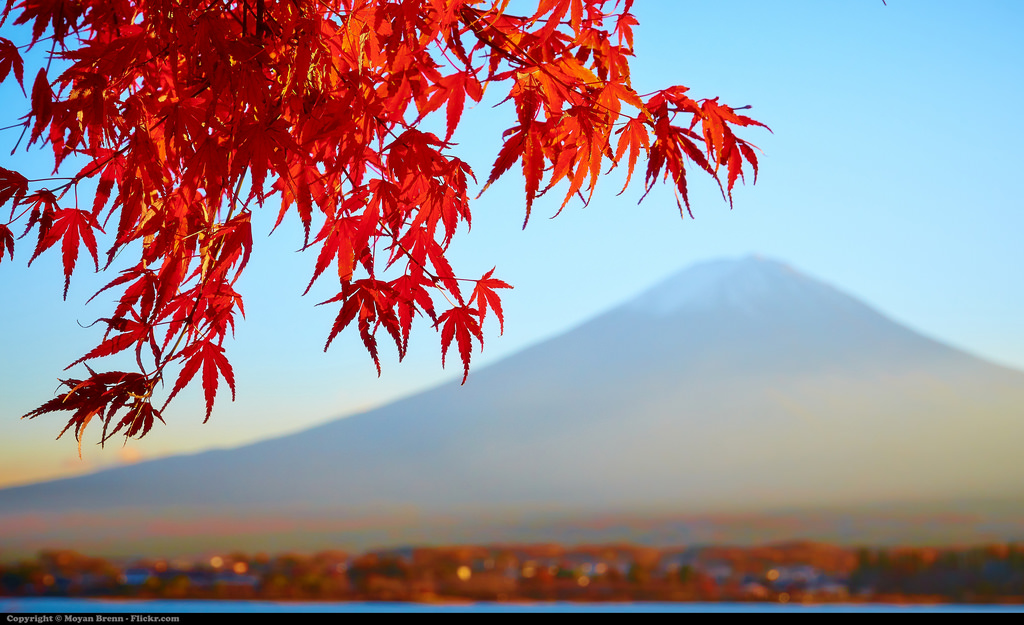American soldiers need to leave South Korea | NK News - North Korea News

American soldiers need to leave South Korea
Continuing U.S. presence helps Seoul avoid facing reality
Craig Urquhart
April 22nd, 2015
FacebookTwitterEmailLinkedInGoogle+Print
Share4
Comments0

It’s time for the United States to withdraw its soldiers from Korea. This has nothing to do with “liberating South Korea from U.S. imperialism,” and nothing to do with American retrenchment and isolationism.
On the South Korean left, calls for withdrawal reek of reactionary racism and thinly veiled Korean nationalism. The fascist Korean left and its mendacious apologists still lurk in open sight. Korea experienced actual colonialism under Japanese rule, and whatever the U.S. presence may be, it isn’t that. Even if Korea was once a client state, that changed decades ago.
On the U.S. right, the old Cold War is over and right-wing American politicians have grown tired of propping up wealthy Asian allies. But their nihilistic isolationism is misplaced. Power, respect and allies come with a price, and the U.S. should expect to have to pay it.
The reason that U.S. troops should leave is that the presence of American soldiers encourages South Korean irresponsibility. South Korea has to grow up and take charge of its situation. How it got there doesn’t matter.
ENDLESS CHILDHOOD
South Korea has been allowed to act like an overgrown child for decades. The U.S. exercised exclusive military command because South Korea could not be trusted not to start a world war, and now resists the American push to transfer operational command. It relies on U.S. protection when it flubs its own diplomatic efforts. It carved out a state-sponsored industrial policy that flouted fair trade rules, but was given a generous pass, and now pretends that this was entirely a South Korean achievement. It received aid from the IMF during the Asian Currency crisis, but has made little headway in financial reform.
The United States has been bailing South Korea out militarily, politically and diplomatically since UN troops landed at Incheon.
The “Miracle on the Han” is indeed miraculous, but it came prepackaged with serious design flaws that South Korea is too smug to address. South Korea was allowed access to foreign markets without reciprocating; sheltering industries breeds inefficiency and creates justified resentment overseas. “Get-rich-quick” economic policies artificially concentrate wealth and power into the hands of a tiny class of fratricidal, laughably dysfunctional and incompetent elites. Favoritism and collusion enables society-wide institutional corruption. “Bbali bbali” (“speed first!”) development encourages a culture of shoddy workmanship and corner-cutting, which, when combined with corruption, actively endangers South Korean society. Rigid, military-inspired corporate cultures stymie the development of creative and knowledge industries, while heavy regulation drowns out domestic and foreign competition, allowing gargantuan family combines, the infamous chaebol like Samsung and LG, to treat South Koreans like indentured laborers and captive consumers. Government interference in the economy makes South Korea more like a nation-sized “company town” than a modern state.
South Koreans are both proud of and enraged by their chaebol. This schizophrenia is a direct result of the economic model spearheaded by South Korea’s 1960s and 1970s dictator, Park Chung-hee. While ostensibly successful, this model was also deeply flawed, yet few will openly admit that the rot was built-in and does not come from pernicious outsiders. Political actors blame vague and sinister-sounding foreign forces for manifestly domestic economic and social issues. They can do this because Korea abdicates responsibility for its own mistakes.

Photo by Moyan_Brenn

JAPAN, THE ETERNAL BOGEYMAN
While almost every word uttered by the North Korean dictatorship is a naked lie, one piece of propaganda hits home. Most of South Korea’s educated class and elites have elders who were energetic participants in the Japanese colonization of the Korean peninsula. Sanctimonious South Koreans angry at Japan should ask their grandparents some hard questions before they join online anti-Japanese riots. Much of this Japanophobia is little more than a species of self-hatred, resentment at what colonization told Koreans about themselves. Few other colonized nations were as tractable and easily controlled as Korea under the Japanese, and few colonial enterprises had so many enthusiastic collaborators. And while both South and North Korea adopted variations of Imperial Japanese social norms, Japan has largely moved on.
South Korea doesn’t have to take responsibility for its poor relations with Japan, its only real regional ally
South Korea was not unique in its acquiescence. After 1944, France overflowed with a comically large number of retroactive resistance fighters. The difference is that France has to handle its current relationship with Germany on its own. South Korea doesn’t have to take responsibility for its poor relations with Japan, its only real regional ally, because it’s free to take cheap potshots from behind America’s broad shoulders, safe in the knowledge that Uncle Sam will smooth it all out.
The Japanese Empire was blasted into oblivion 70 years ago. South Korea should face reality, suck it up and stop playing the victim. Whatever grievances exist, it’s going on four generations and it’s time South Korea joined the adult world. South Korea needs to be honest and it has to forgive itself. In the end, this will enable it to find some sort of psychological peace with its Japanese cousin. But the game of honesty and reconciliation is a game for adults, and America’s indulgence isn’t helping.
REUNIFICATION LIP SERVICE
Foreigners have to be careful, because unification is the “third rail” in South Korean social conversations. Everyone pretends it’s important, but the truth is that South Koreans rarely do more than chant empty mantras. South Korea can’t even bring itself to endorse a basic North Korean human rights bill that the rest of the world passed long ago. Individually, South Koreans pretend that North Korea doesn’t exist, while successive governments absurdly claim to advance the cause of the entire Korean nation.
Like most socialist states, North Korea wastes its energy ruining the lives of its own people in fits of ideological zeal. South Korea heckles from the sidelines, throwing peanuts at anyone who steps up. Big Brother America runs interference, rendering South Korean inaction free of any blame or responsibility.
South Korea is the only country with the moral authority to tear down the North Korean regime. It needs to find the courage to seize this moral authority. Without American oversight, South Korea would finally be forced to negotiate with the sole foreign power that matters: China.
The presence of countless terrified North Korean refugees in China, theoretically entitled to South Korean citizenship, puts South Korean cowardice and greed into sharp relief. The refugees subsist in a grim limbo because South Korea won’t spend any diplomatic capital to help them. Are they, or are they not, Koreans? Is it fear of 150,000 hungry mouths? If solidarity is sold so cheaply, why the unification lip service? If South Korea really wants unification, it should prove it by first taking responsibility for those who escape the Kim-family dictatorship and bringing them to South Korea, the home they so desperately need.
North Korea is this century’s worst crime, masquerading as a state. Its regime needs to be toppled and a divided nation healed. Reunification may mean use of force or it may mean diplomatic acrobatics. It might also mean accommodating tyrants and slitting the throat of Korean democracy, if South Korea doesn’t have the courage of its convictions.
However it’s achieved, unification will certainly mean profound and wrenching social upheaval in the South, and quite likely economic and political chaos. Blindly hoping for a calm, orderly unification is irresponsible. The moment the process starts, the border will evaporate – unless South Korean conscripts are willing to shoot grandmothers and jubilant patriots – and once the border is gone, all bets are off. South Koreans seem to understand, on a gut level, that reunification will be a socio-economic catastrophe for them. Do they have the courage to stare damnation in the face, without flinching, for the sake of their nation? Few seem to consider the full implications of reunification, few willingly discuss it beyond regurgitated assertions, and nobody wants to plan for it.
BECOMING THE FUTURE
South Korea can still participate in military training, deploy forces internationally, and co-ordinate policies with its allies
While refusing to give up second-fiddle status in its partnership with America, South Korea vacillates between obsequious kowtowing and ingratitude. In between fits of petulant whining, it bemoans its perceived weakness but resents being asked to stand up. If South Korea is the future of the Korean people, it’s time for South Korea to stop talking and BE the future of the Korean people.
Withdrawing troops does not mean weakening the U.S.-South Korean alliance. South Korea can still participate in military training, deploy forces internationally, and co-ordinate policies with its allies. American troops can be in South Korea at a moment’s notice if North Korea attacks again. South Korea will still need a strong international consensus to confront North Korea, but this is South Korea’s game to play, and South Korea needs to be at the front of the lineup. It should be a responsible partner, not a dependent.
South Korea is more than ready. It has immeasurably more cultural, political and economic influence abroad than any ethnic Korean state in history. No Korean state has ever been tougher, stronger, richer or smarter. South Korea has all of the moral and political authority it needs to deal with North Korea’s isolated, xenophobic dictatorship.
America is the guest who brought the beer and the music and turned a sketchy party into a social event, but it’s lingering too late into the wee hours. All the good intentions in the world mean nothing if American overprotection prevents South Korea from learning to fend for itself, enables cowardice instead of courage, and allows South Korea to wallow in its own indulgent adolescence for another generation. It’s time for American soldiers to go home.
Featured Image: USFK welcomes new ambassador to Korea by U.S. Army Korea (Historical Image Archive) on 2011-12-05 15:17:32
FacebookTwitterEmailLinkedInGoogle+Print
Get North Korea headlines delivered to your inbox daily
Subscribe to the NK News 'Daily Update' and get links to must-read stories each morning
ABOUT THE AUTHOR

Craig Urquhart
Craig Urquhart is a Canadian expat working with NGOs and media in Korea.READ MORE ARTICLES
No comments:
Post a Comment